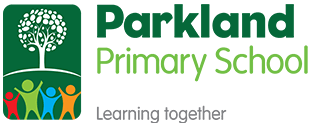© 2024 All rights reserved
Managed & Supported Hosting by Globe2
Parkland Primary began its transition towards Teaching for Mastery in 2015 and our maths teaching and learning journey continues to grow. Through our work with the East Midlands South Maths Hubs, our teaching is based on the five key ideas of Teaching for Mastery: Coherence, Representation and Structure, Variation (procedural and conceptual), Fluency and Mathematical Thinking.
Our overarching intent is to instil a love of a mathematics in our children and staff; we want our children to be life-long mathematicians and to understand how mathematics is essential to everyday life and that it is critical to science, technology, engineering and finance. Through developing children’s curiosity and gaining an appreciation of the beauty and power of mathematics, we want all children to enjoy the subject and to experience success.
In our teaching and learning, we understand the importance of metacognition and developing self-regulation in children to become independent learners. Through our work on Growth Mindset, we have developed a culture where the children (and staff) understand that mistakes help us learn and we should not be afraid of getting things wrong. To embed this further, we regularly give the children the opportunity to self-mark and reflect; this allows the children to have a feeling of success as well as developing their resilience and perseverance.
We have embedded the three aims of the National Curriculum in our teaching: fluency, reasoning and problem solving. We believe that all three of these are equally important to develop well-rounded mathematicians.
The National Curriculum for mathematics aims to ensure that all pupils:
Teachers use the White Rose planning scheme to support their long-term planning. White Rose suggests how long to spend on each block of learning, but the length of time spent is down to individual teachers to decide what is best for their classes’ learning. Teachers work collaboratively to plan mathematics using the learning journey planning format; the teachers look what the prior learning was then build the current teaching upon that. Teachers use the White Rose progression maps for overall National Curriculum coverage and use the mental arithmetic progression document to plan for fluency and arithmetic.
For each unit of work, we block learning and re-visit practice over time through a spaced practise approach (Learning Scientists, 2016) as research suggests this will lead to better long-term retention of knowledge. Retrieval practice is a fundamental part of our mathematics curriculum as it is proven to strengthen memory and make it easier to retrieve the information later (Rosenshine, 2012; Jones, 2019; Barton, 2017). Opportunities for retrieval practise occur in many places in the mathematics curriculum:
Multiplication Tables
Throughout the year groups in Parkland Primary, children are developing and consolidating their multiplication knowledge in line with our arithmetic and mental strategies document and age-related National Curriculum expectations. This includes a variety of tasks:
Maths is taught as part of the Area of Learning designated as Mathematics in the EYFS Curriculum. The EYFS Curriculum is made up of two strands: Numbers and Shape, space and measure. The children receive four whole class, teacher led maths teaching per week and they have access to independent child initiated maths activities daily. EYFS staff also provide opportunities for the children to work as guided groups weekly to apply the whole class learning. Children are given opportunities to work on maths activities both indoors and outdoors. These activities are based on the main areas as outlined in the EYFS curriculum. Throughout the year in EYFS, each week the learning is focussed on one number and skills such as addition, subtraction and use of mathematical equipment are taught throughout as well as shape, space and measure being taught throughout the year. As in the rest of the school, the Maths planned builds on previous learning and allows time for children to develop mastery in the key areas of Mathematics without moving onto a new concept too quickly. Daily Review and retrieval are also key to the EYFS teaching and learning, where the daily review links back to prior learning.
Planning is updated daily taking into account previous learning. This ensures the maths activities are appropriate and relevant to the childrens learning needs and their interests. Maths activities in Continuous Provision are planned taking into account both the childrens interests and curriculum coverage.
Pupils progress is be assessed using regular formative assessment in lessons through strategies such as questioning, regular retrieval practice, quizzing, independent learning tasks, pre and post assessments and assessment of work in books and feedback.
At the start of each maths learning journey, the children will complete a pre-learning assessment (where appropriate and using previous years objectives) and at the start of each learning journey block to assess prior learning; they will be assessed formatively through the use of a post assessment at the end. Teachers will use both these assessments to provide further feedback or re-teach concepts where necessary to close gaps and ensure pupils have mastered the curriculum content at that point.
Summative assessment in Mathematics takes place at the end of every term in line with the School and Trust Assessment Schedule. In years 1, 3, 4 and 5 this take the form of Rising Stars Assessment and in years 2 and 6 it is previous SATs papers.
In year 4, the children complete the Multiplication Tables Check (MTC) in June each year.
Years 2 and 6 also take part in the Statutory Assessment Tests (SATs) that take places in May each year.
In mathematics children are tracked in multiple ways:
Individual progress is reported to parents through two termly Parents Evenings and an end of year report.
To find out more about our maths curriculum please see the whole school maths policy below and progression mapping of the curriculum across the school.
© 2024 All rights reserved
Managed & Supported Hosting by Globe2

